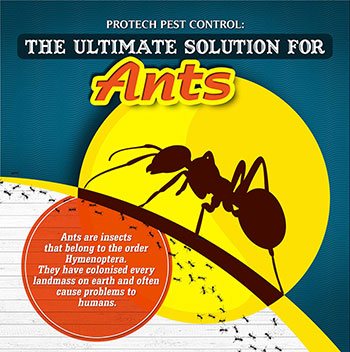The Role Of Insect Control In Food Safety And Security And Health
The Role Of Insect Control In Food Safety And Security And Health
Blog Article
Article Developed By-Dickey Malmberg
Are you aware of the concealed risks that insects present to the safety and hygiene of your food? From rodents to pests, these unwanted visitors can pollute your active ingredients, surfaces, and storage locations.
This post explores the critical duty of bug control in preserving the highest standards of food safety and health. Discover efficient approaches and prevention actions that will assist you shield your business, consumers, and credibility.
Do not allow Rat extermination techniques endanger the top quality of your food.
The Influence of Pests on Food Security and Hygiene
In your kitchen, insects can have a significant effect on food security and health. These undesirable visitors, such as rats, insects, and cockroaches, can contaminate your food, surfaces, and utensils with hazardous microorganisms, infections, and bloodsuckers. They can quickly access your pantry, closets, and even your refrigerator, leaving droppings, pee, and hair.
Pet-safe rodent repellents can they spoil your food by eating through packaging, yet they can also spread illness like Salmonella, E.coli, and Listeria. Picture preparing a meal for your household, not aware that the components you're using are already infected.
It's essential to take prompt activity to avoid and regulate parasites in your kitchen area. Regular cleansing, correct food storage space, and professional pest control steps are necessary to make certain food security and preserve a hygienic setting in your kitchen.
Reliable Insect Control Methods for the Food Market
Executing reliable insect control approaches is vital for preserving food safety and health in the food market. By executing these techniques, you can stop pests from polluting the food and ensure that your products are safe for usage.
One reliable method is to regularly inspect and monitor your facility for indicators of insect task. This includes checking for droppings, nests, or any damage caused by pests.
It's additionally crucial to seal all access points to prevent insects from getting in the center. Routine cleaning and cleanliness are important, as pests are drawn in to food deposit and spills.
In addition, proper waste management is important to avoid the buildup of food waste that can attract insects.
Preserving Health Requirements With Pest Prevention Measures
To preserve hygiene requirements, you need to consistently execute pest avoidance steps. By taking proactive steps to stop insects from entering your food facility, you can make certain the safety and sanitation of your premises. Here are some reliable bug prevention actions to think about:
- Seal all fractures and crevices: Bugs can go into through even the smallest openings. Routinely inspect and secure any voids in doors, windows, walls, and floors to keep bugs out.
- Proper waste administration: Dispose of food waste without delay and firmly in secured containers. This will certainly lessen the destination of parasites and avoid problems.
- Normal cleaning and sterilizing: Preserving tidiness in your establishment is crucial. Routinely tidy and sanitize all areas, paying unique focus to areas where pests may conceal or breed.
- Execute a monitoring system: Frequently evaluate your facilities for indicators of pest task. Install insect monitoring devices, such as traps or sensors, to determine and resolve any prospective issues early on.
Conclusion
So bear in mind, when it involves food safety and security and health, bug control plays an important duty.
By carrying out efficient pest control strategies and preventive measures, we can ensure the highest possible standards of cleanliness and safety and security in the food industry.
Don't let parasites endanger the top quality of our food; allow's stand together and protect our health and wellness and wellness.
